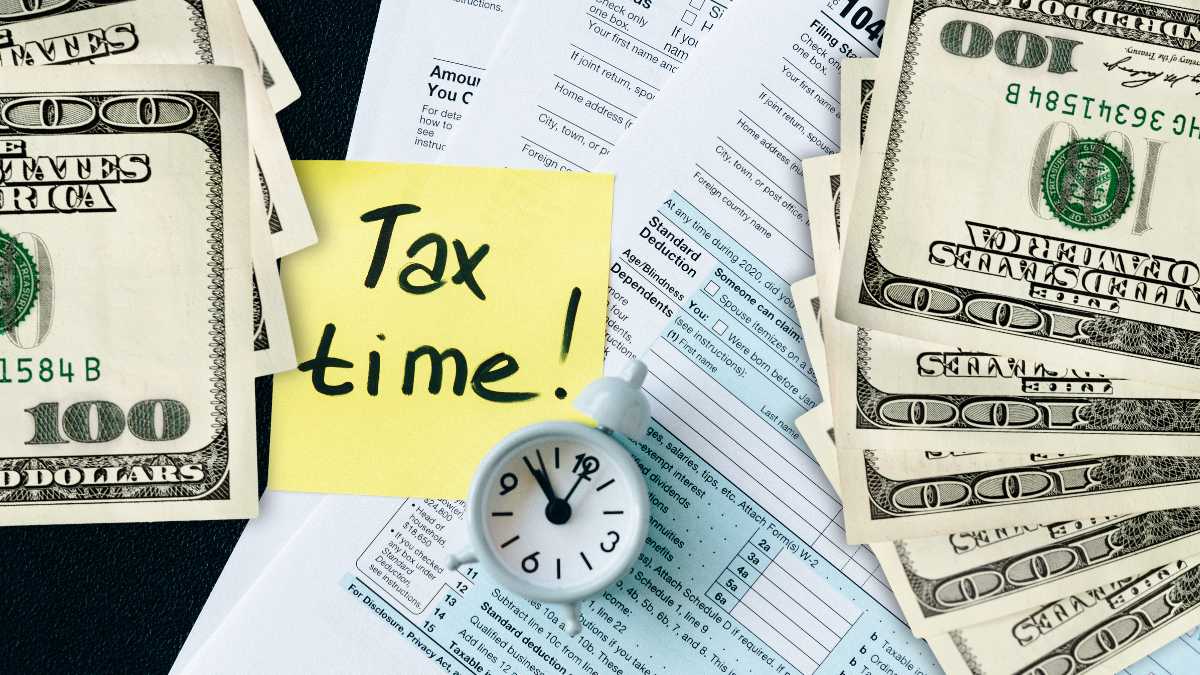By These days, millions of Americans are checking their email for the long-awaited email from the Internal Revenue Service (IRS) approving a juicy tax refund. But that long-awaited message may take a while to arrive. And there are several reasons for this that you may not know.
Tax season is at its peak, and although the IRS expects to process about 140 million returns by April 15, not everyone is going to dance in victory. The reason? There are several reasons why your refund could be cut… or not at all. And be careful, this happens while Elon Musk and the Trump team are scissoring the IRS staff.
Reasons that can leave you without your tax refund
In a first scenario, it may happen that you have the refund money almost in the account, but the IRS decides that there is a deduction because you owed child support payments. If you fell behind on the children’s alimony, the government has permission to take your refund and send it directly to where it belongs. If you have debts to the children, you better catch up before the IRS does it for you (and without asking).
If you owe the government money on student loans, the IRS could take a bite out of your tax refund, too. The IRS uses a program called TOP to divert your cash toward those debts. And here is the hard fact: last year people owed the federal government 2.3 billion in non-tax debts! Are you part of that statistic? Better check your accounts.
If you owe taxes, say goodbye to your refund
Do you think only the federal government plays hardball? Nothing. If you owe taxes to your state (whether income, property, or whatever), the IRS can cut your refund and send that money to the state agency. In other words, double auditing. Check to see if you have outstanding debts with your state before making plans with that money.
Finally, if you received unemployment compensation and underreported it, or if you owe money related to those benefits, the IRS can adjust your refund. And be careful: although unemployment benefits sound like help, they are taxable income. If you made a mistake when reporting them or you have outstanding debts, prepare to see how they will be deducted from your check.
More delays and delays: What about layoffs at the IRS?
Just when most people need answers, the Department of Government Efficiency (DOGE) is laying off thousands of IRS workers. According to unions and experts, this could make everything take twice as long.
“A key result is that almost all federal probationary employees, which generally means people who joined in the last year or two and have not yet qualified for the strong job protections that government jobs are generally known for (reportedly 200,000 federal employees) face the possibility of being laid off,” said one employee who worked at the IRS and was laid off.
. This is how the American tax system works, based on “voluntary compliance.” In other words, we all play fair… in theory. But what happens when the referee (the IRS) runs out of players? With mass layoffs, the party becomes murky.
The IRS trust you: don’t try to fool them
The IRS doesn’t just rely on your good faith. It has entire teams dedicated to auditing statements, hunting for errors and pursuing fraud. But if they fire those who do that job, things get complicated. Fewer auditors = fewer controls = more people who could sneak in without paying the right amount. And here is the drama: although you and I continue to be model citizens, paying on time, there are those who will take advantage of it to cheat. Unfair? Completely. But that’s the game when the guard is short-handed.
It’s not just about evaders. Think about the times it takes the IRS forever to answer a call, resolve a question, or process a refund. With fewer employees, this could get worse. Does your statement have an error? Be prepared to wait months instead of weeks.
Do you need to fight a claim in court? Without trained in-house lawyers, the mess will be epic. Even simple procedures will become an odyssey. And if you have a business that depends on customers spending their refund… you better have a plan B, because that money could arrive late (or never).




